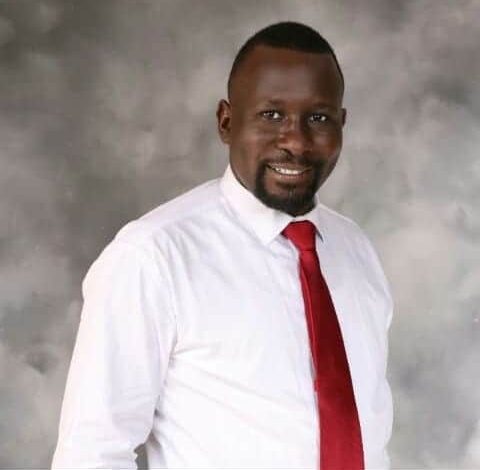News
Ex-Nairobi Senatorial Aspirant Gabriel Chapia Convicted for Fraud

NAIROBI, Kenya — Former Nairobi senatorial aspirant Gabriel Bukachi Chapia has been convicted of forgery and fraudulent acquisition of public funds, ending a protracted corruption case that has trailed him since 2017.
Chapia, who unsuccessfully contested the Nairobi senatorial seat on an ODM ticket in the 2017 general elections, pleaded guilty to five charges — three counts of forgery and two counts of fraudulently acquiring public property — in a plea bargain at the Milimani Anti-Corruption Law Courts.
Principal Magistrate C.N. Ondieki sentenced him to two and a half years in prison, with the option of paying a Sh150,000 fine — Sh30,000 for each count. In addition, Chapia was ordered to refund over Sh4 million in illegally obtained earnings from various public offices.
The court directed him to repay Sh182,751 earned during his tenure as ICT Manager at Moi Teaching and Referral Hospital (MTRH) and Sh3,314,662 received at the Kenya Investment Authority (KenInvest). With a 12 percent interest penalty, the total amount surges to Sh3,917,102.56. Failure to repay will attract an additional one-year jail term.
The Ethics and Anti-Corruption Commission (EACC) launched investigations against Chapia after receiving a complaint in May 2017 alleging he had falsified academic certificates. Detectives discovered he had forged a Master’s degree in Information Technology from Daystar University, a Bachelor’s degree in Computer Science from Maseno University, as well as several diplomas and certificates allegedly issued by the Catholic Diocese of Nakuru.
Using these fake qualifications, Chapia secured senior public service jobs, including ICT Manager at MTRH in 2009, ICT Manager at KenInvest in 2010, and later Ward Administrator at Nairobi City County in 2014.
The conviction comes nearly a year after a controversial bid by the Director of Public Prosecutions (DPP) to withdraw the case in October 2024 under Section 87(a) of the Criminal Procedure Code. The DPP’s request — filed at the behest of the accused — was strongly opposed by the EACC, which argued the move was against public interest. The court sided with the anti-graft agency, allowing the trial to proceed with 14 witnesses already on record.
Chapia’s downfall now stands as a cautionary tale on corruption and academic fraud in Kenya’s public service.
Would you like me to expand this into a long-form investigative feature that digs deeper into his political career, the attempted withdrawal of the case, and what it reveals about corruption loopholes in Kenya’s justice system?
Kenya Insights allows guest blogging, if you want to be published on Kenya’s most authoritative and accurate blog, have an expose, news TIPS, story angles, human interest stories, drop us an email on [email protected] or via Telegram
-

 Grapevine2 weeks ago
Grapevine2 weeks agoRussian Man’s Secret Sex Recordings Ignite Fury as Questions Mount Over Consent and Easy Pick-Ups in Nairobi
-

 News1 week ago
News1 week agoTHE FIRM IN THE DOCK: How Kaplan and Stratton Became the Most Scrutinised Law Firm in Kenya
-

 Investigations1 week ago
Investigations1 week agoMulti-Million Dollar Fraud: Three Kenyans Face US Extradition in Massive Cybercrime Conspiracy
-

 Economy1 week ago
Economy1 week agoIran Demands Arrest, Prosecution Of Kenya’s Cup of Joe Director Director Over Sh2.6 Billion Tea Fraud
-

 Business1 week ago
Business1 week agoA Farm in Kenya’s Rift Valley Ignites a National Reckoning With Israeli Investment
-

 Africa2 weeks ago
Africa2 weeks agoFBI Investigates Congresswoman Ilhan Omar’s Husband’s Sh3.8 Billion Businesses in Kenya, Somalia and Dubai
-

 Grapevine4 days ago
Grapevine4 days agoA UN Director Based in Nairobi Was Deep in an Intimate Friendship With Epstein — He Even Sent Her a Sex Toy
-

 Politics2 weeks ago
Politics2 weeks agoSifuna, Babu Owino Are Uhuru’s Project, Orengo Is Opportunist, Inconsequential in Kenyan Politics, Miguna Says
















